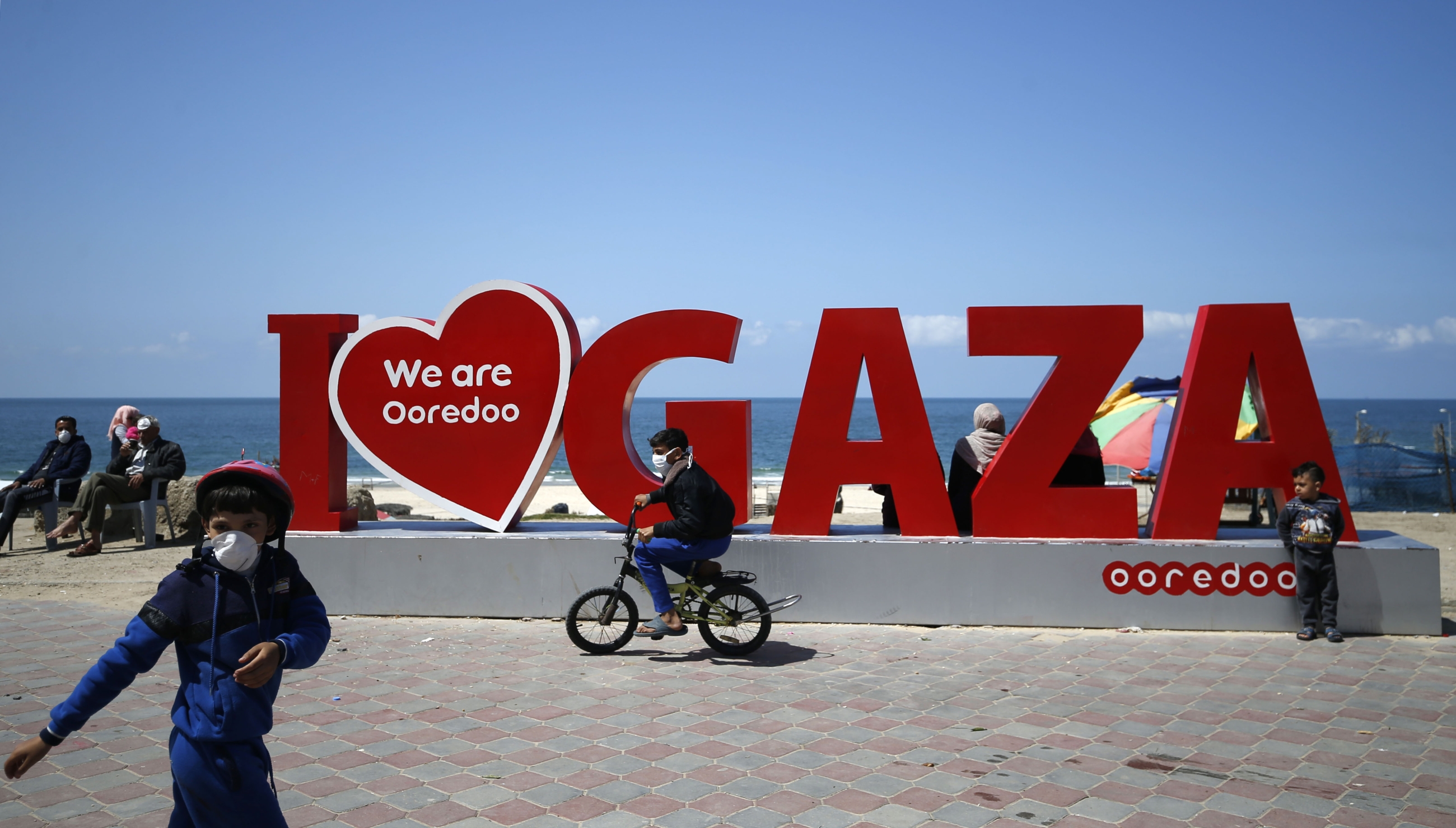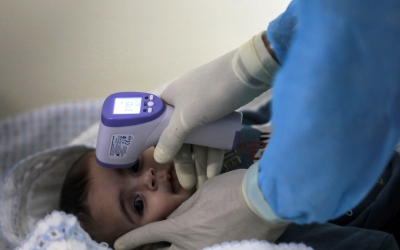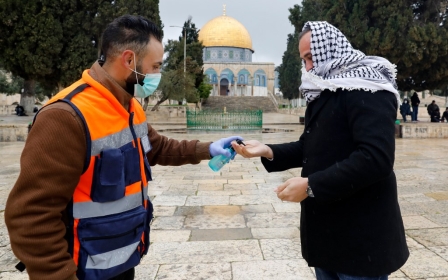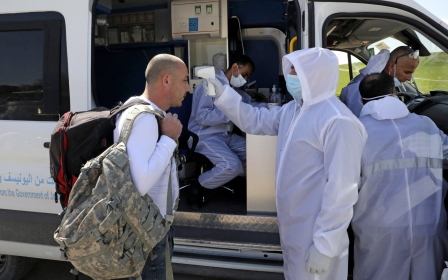Coronavirus: Gaza Strip registers seven new cases

The besieged Gaza Strip recorded seven new coronavirus cases, while 15 new cases were confirmed in the occupied West Bank, health officials said.
Gaza's health ministry said the new infections are of people who contracted the virus after being in contact with the first two Covid-19 cases registered in the strip.
The ministry also said in a statement that Gaza's nine infected people are being held in quarantine in the city of Rafah.
In the West Bank, meanwhile, the number of coronavirus cases has risen to 84, 17 of whom have recovered, the Palestinian Ministry of Health said on Thursday.
On Wednesday, Palestinian authorities recorded the first coronavirus-related death in the West Bank.
A woman in her 60s from the village of Biddu, north of Jerusalem, died after testing positive the same day.
The ministry said that 20 doctors and nurses were asked to quarantine after coming into contact with the woman's infected son.
Ibrahim Melhem, the Ministry of Health spokesperson, said that she did not travel outside her village, and it is possible she contracted the virus from someone coming from outside the village, adding that her son-in-law works inside Israel.
Melhem said on Thursday that 13 people tested positive in Biddu, including a 12-year-old and a 15-year-old, and were transferred to Hugo Chavez hospital in TurmsAyya town.
“Palestine is passing through a critical time of coronavirus pandemic spread, which is reaching the danger stage, and we need everyone to take extreme measures of caution,” Melhem said.
He urged Palestinians to cease going to work inside Israel, where 2,666 coronavirus cases have been confirmed, including five deaths and 66 recoveries.
Melhem also said that the Palestinian health system is suffering from a shortage of medical equipment, including Covid-19 test kits.
On Wednesday evening, Israel imposed a new measure instructing people to go no further than 100 metres from their homes. The restriction is set to stay in place for seven days.
Middle East Eye propose une couverture et une analyse indépendantes et incomparables du Moyen-Orient, de l’Afrique du Nord et d’autres régions du monde. Pour en savoir plus sur la reprise de ce contenu et les frais qui s’appliquent, veuillez remplir ce formulaire [en anglais]. Pour en savoir plus sur MEE, cliquez ici [en anglais].





